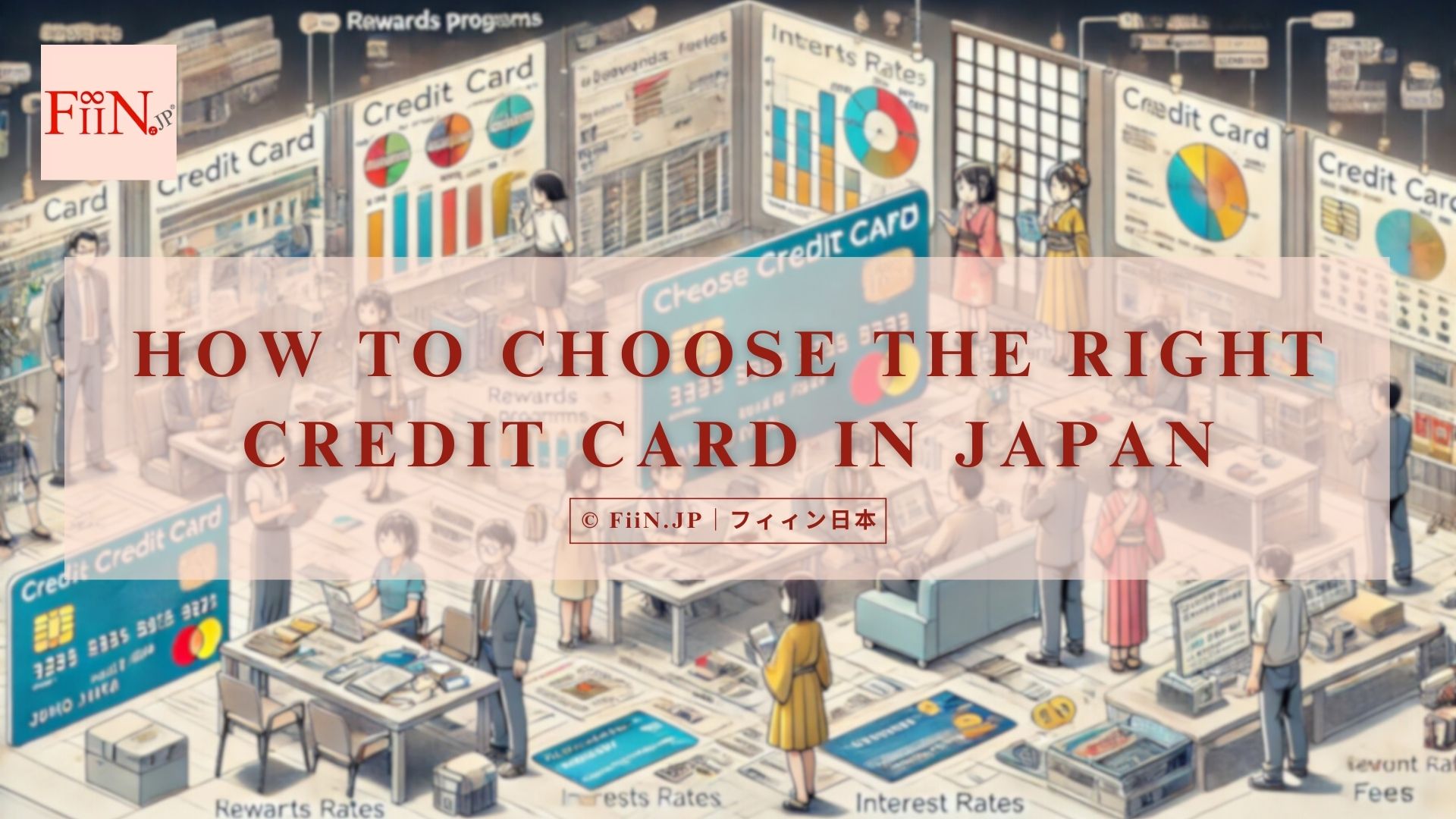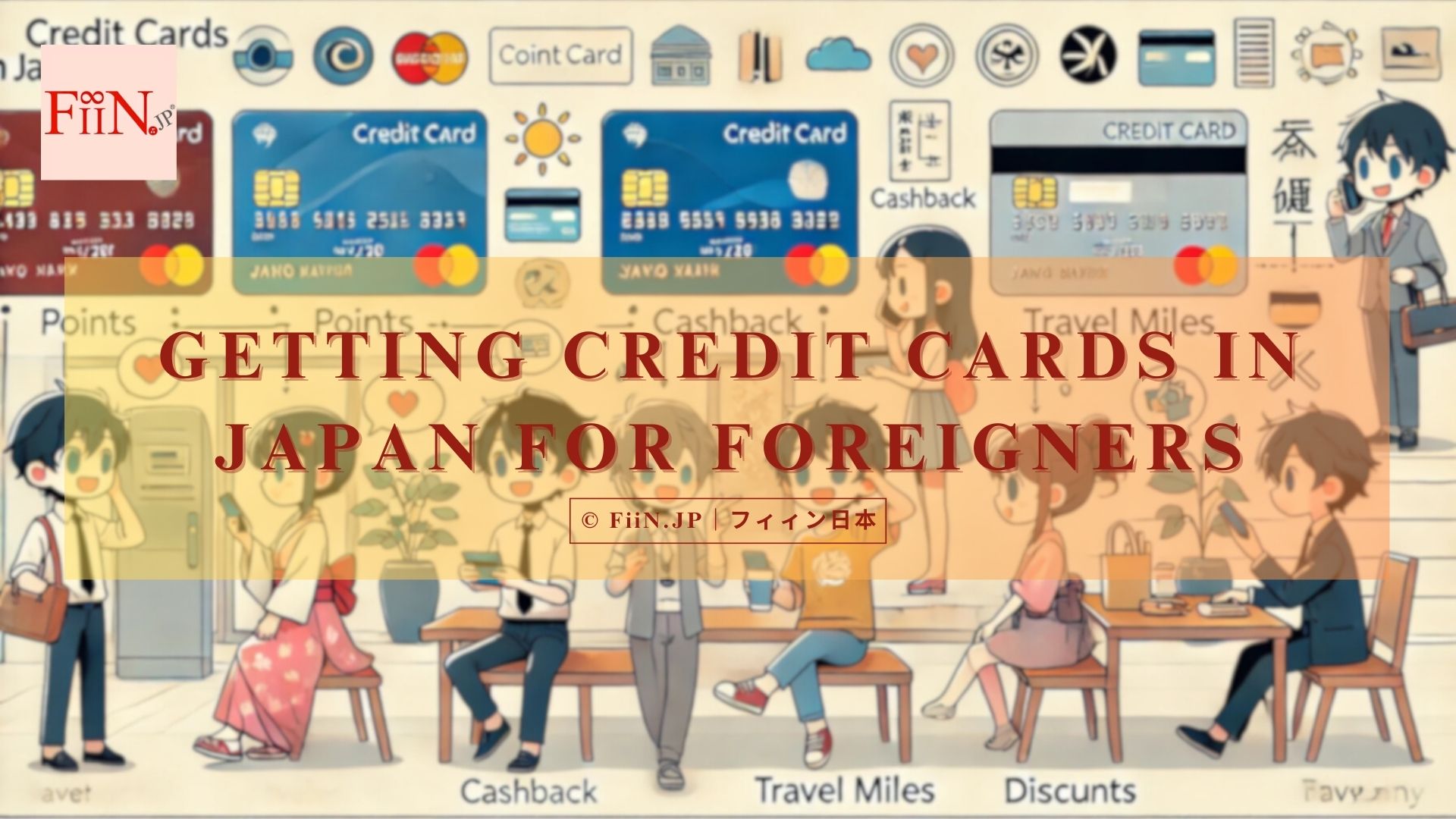Credit Scores in Japan: A Comprehensive Guide
TOKYO – Selecting the right credit card in Japan involves evaluating your financial needs, comparing the various options available, and understanding the terms associated with each card.

KEY TAKEAWAYS:
- Assess Your Needs and Spending Habits: Choose a credit card based on your specific financial goals and lifestyle, such as rewards for frequent shopping or travel benefits.
- Consider Fees and Interest Rates: Opt for cards with low or no annual fees and favorable interest rates to minimize costs.
- Application and Flexibility: Ensure the card offers a simple application process and flexible payment options to suit your financial management preferences.
English|Française|Tiếng Việt|Bahasa Indonesia|Wikang Tagalog|日本語
Credit Card Types and Issuers
Credit cards in Japan are predominantly issued by major banks and financial institutions in partnership with international card networks like Visa, Mastercard, American Express, and JCB. Some popular issuers include Rakuten, EPOS, Saison, and MUJI, each offering various benefits and catering to different needs.
Key Features to Consider Before Having One
Read more in-depth analysis here:
➡︎💰 Understanding the Mechanism of Credit Cards Before Having One
➡︎💰 Credit Scores in Japan: A Comprehensive Guide
Annual Fees: Some cards come with no annual fees, while others may charge a fee after the first year. For instance, the Rakuten Card offers no annual fee, making it an attractive option for budget-conscious users.
Rewards and Points Systems: Many credit cards offer rewards in the form of points, cashback, or miles. The Rakuten Card, for example, provides 1% cashback on all purchases and additional points for purchases made on the Rakuten platform.
Interest Rates: Understanding the interest rates is crucial, especially if you plan to carry a balance. In Japan, interest rates for credit cards typically range between 12% and 16%.
Payment Options: Japanese credit cards offer various payment methods such as lump-sum payments (ikkai barai), installment payments (bunkatsu barai), and revolving credit (ribo barai). Lump-sum payments do not incur interest if paid in full by the due date, while instalment and revolving payments may incur additional interest.
Foreign Transaction Fees: For those who travel frequently, selecting a card with low or no foreign transaction fees is beneficial. Cards like the EPOS Card and Rakuten Card offer no foreign transaction fees.
Popular Credit Cards in Japan: Overview
Choosing a credit card in Japan can be simplified by understanding a few key factors and knowing what to look for. Here’s a streamlined guide to help you decide which card might be best for you. Key features to consider are:
- Annual Fees: Many credit cards in Japan come with no annual fee, especially in the first year. This can be a great cost-saving feature if you plan to use the card frequently but don’t want to pay extra just to keep it.
- Rewards Programs: Credit cards often come with rewards such as cashback, points, or miles. These rewards can be redeemed for discounts, merchandise, or travel benefits. Cards with strong rewards programs can be especially beneficial if you align them with your spending habits.
- Interest Rates: Be mindful of the interest rates, especially if you plan to carry a balance. Lower interest rates can help reduce the overall cost of borrowing money on your card.
- Foreign Transaction Fees: For those who travel or shop internationally, selecting a card with low or no foreign transaction fees is crucial. This can save you money on every purchase made abroad.
- Payment Flexibility: Japanese credit cards typically offer different payment methods such as lump-sum payments (no interest if paid in full by the due date), instalments, and revolving credit (which can incur interest). Choose a card that offers the payment flexibility you need.
Steps to Choose the Right Credit Card
Assess Your Needs: Determine what you need the credit card for. Are you looking for cashback, travel rewards, or simply a card with no annual fee? Understanding your primary use will help narrow down your options.
Compare Rewards and Benefits: Look at the rewards structure and benefits each card offers. If you frequently shop online, a card like the Rakuten Card, which provides additional points for Rakuten purchases, may be ideal.
Check the Fees and Interest Rates: Ensure you understand the fee structure and interest rates. Opt for a card with no annual fee if you do not want to incur additional costs. Be aware of the interest rates for instalment and revolving payments.
Consider the Application Process: Some cards have a straightforward online application process with quick approvals, like the EPOS Card, while others may require additional documentation or steps.
Read the Fine Print: Always read the terms and conditions carefully. Pay attention to any hidden fees, the validity of reward points, and the specifics of travel insurance coverage.
Conclusion
Selecting the right credit card in Japan involves evaluating your financial needs, comparing the various options available, and understanding the terms associated with each card. Whether you prioritise rewards, low fees, or travel benefits, there is a card that can meet your needs. Remember to read the fine print and choose a card that aligns with your spending habits and financial goals.
References
- “Best Credit Cards in Japan for Foreigners: 2024 Guide,” Japan Dev.
- “The Ultimate Guide to the Best Credit Cards in Japan for Foreigners: 2024 Edition,” Junket Japan.
- “Top Expat-Friendly Credit Card Companies in Japan,” Apts.jp.
- “How to Get a Credit Card In Japan – A Complete Guide For Foreigners,” Question Japan.
Related Post

Getting Credit Cards in Japan for Foreigners: 2024 Complete Guide & Simple Steps
Credit, debit, and prepaid cards from international brands (VISA, MasterCard, JCB,…) are generally accepted across the country...Read more

